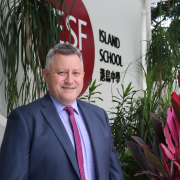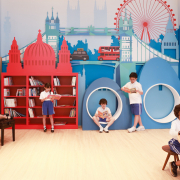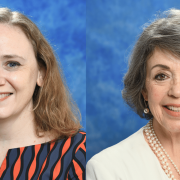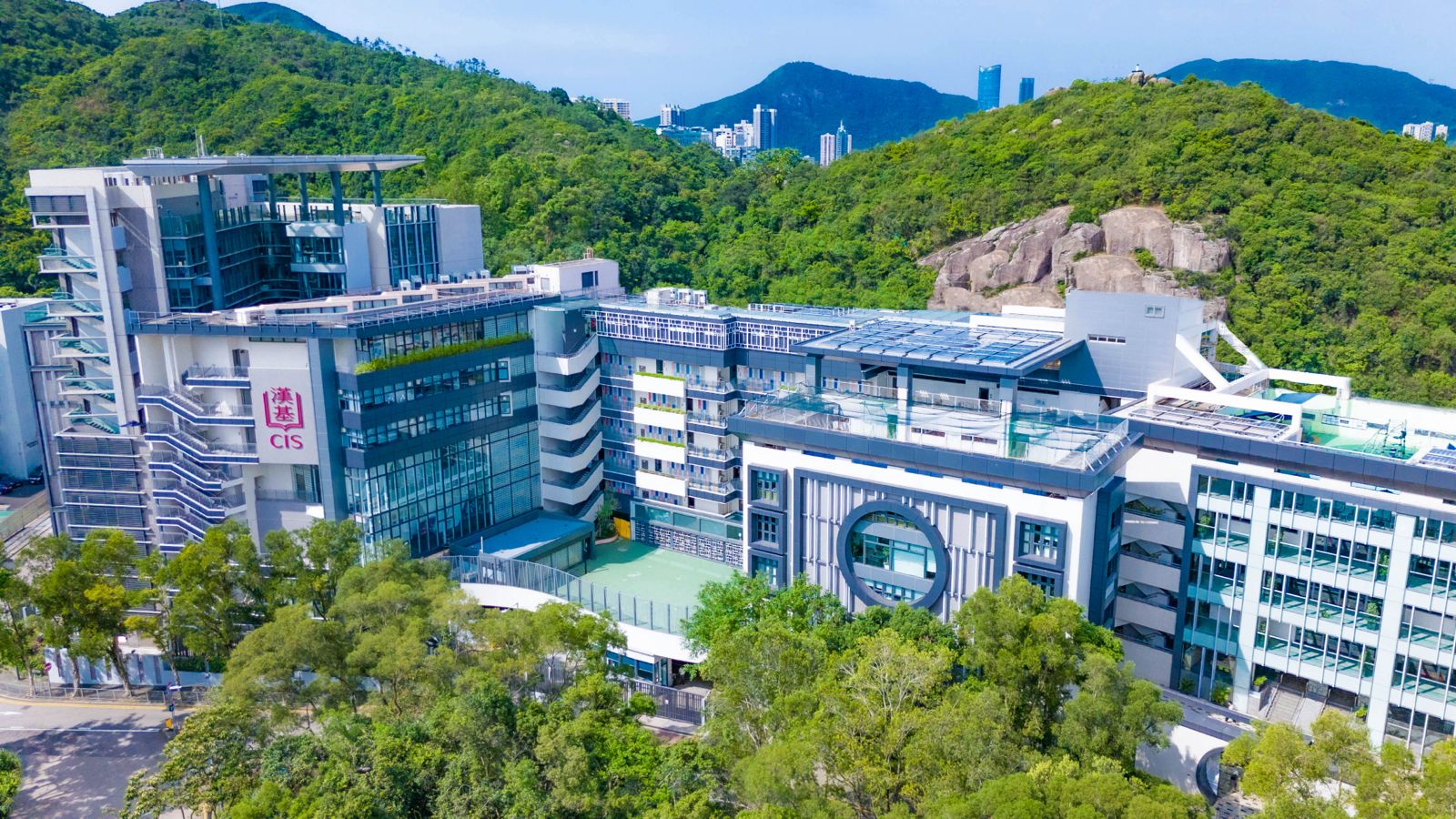
Vision ’33: Shaping the future of Chinese International School
Head of School Mr Sean Lynch discusses the school’s innovative curriculum and commitment to intercultural understandingChinese International School (CIS) offers the first bilingual and intercultural education of its kind in Hong Kong. Mr Sean Lynch, who has served as Head of School for the past six years, shares insights on the immense benefits of an education at CIS.
Can you tell us about your background?
I’ve had the immense honour of leading CIS since August 2018, after having worked as a Head of School in New York City for seven years and as an educational leader in Paris for 15. As for my personal background, it’s complex! I was educated in Austria, England, France and the United States, grew up speaking three languages, and now consider Hong Kong to be home, all of which has given me a lifelong passion for plurilingualism, intercultural understanding and global citizenship, values which both CIS and our city deeply cherish.
What attracted you to join CIS?
Pursuing a career in bilingual education, I’d been following CIS for years. Yet it’s when I heard the school’s song being sung for the first time in English and Chinese that I fell in love with the community. “We come from the East; we come from the West; we learn from each other, and that way is best” go our lyrics. The opportunity to bring these principles alive each and every day is something I find to be extraordinarily noble, particularly in the 21st century.
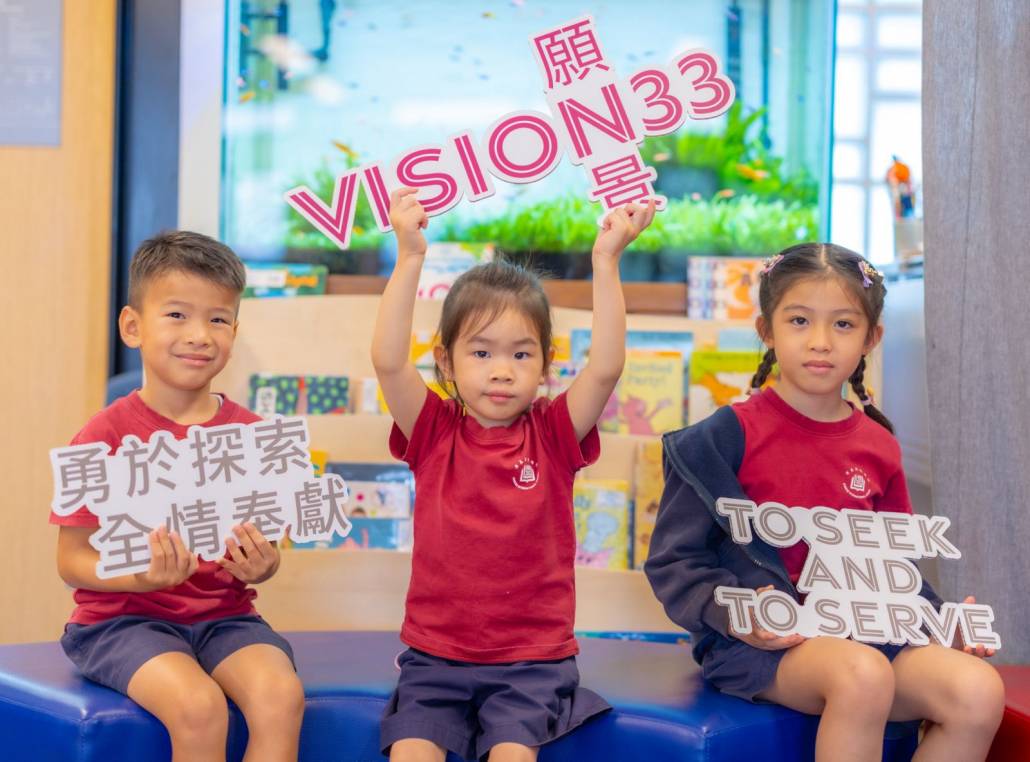
Could you talk us through the admissions process?
Approximately one third of CIS students begin with us at age four and continue all the way through Year 13, which means that we’ve a great deal of stability. Fortunately, we also have two structured entry points, one in Reception, where we have 96 openings, and another in Year 7, where we’re able to add 58 new places. Academic potential, co-curricular interests and personal motivation matter in our admissions process, but a commitment to bilingualism, international-mindedness, and service to the greater good is equally prized.
Can you explain the curriculum?
We’re renowned across the globe for the exceptional bilingual English-Chinese curriculum we’ve been continuously refining in our Primary School since our founding 41 years ago, as well as for the superlative International Baccalaureate Middle Years and Diploma Programmes in Secondary which we were among the very first to offer in Hong Kong.
Can you share more about the bilingual programme?
Each of our classes in Primary is co-taught by an English-language and a Chinese-language specialist, with bilingual teaching assistants providing further support. In Secondary, a larger share of teaching and learning takes place in English, yet all of our students continue with Chinese through Year 13. Starting in Year 7 and continuing through Year 10, our students also engage in extensive experiential learning experiences on the Mainland, from Xian and Nanjing to Yantai and Yangshuo, without forgetting Hangzhou, where everyone in Year 10 spends a whole year.

What distinguishes CIS from other leading schools in the region?
It would be difficult to find another school anywhere in the world whose students do as academically well as ours do, but what may be most distinctive about CIS is the profoundly caring, inclusive, positive learning environment we provide, wherein student agency and community support combine to ensure that every learner feels a sense of belonging at our school, as well as an intrinsic motivation to make a difference for our planet as a whole.
How is technology integrated in the classroom?
We’re ardent believers in technology’s capacity to enhance all facets of the learning experience. At the moment, our team is working especially hard to harness the power of artificial intelligence to provide personalised support for our students’ diverse needs, passions and journeys. Regarding their own use of digital tools, we’re committed to ensuring that it’s always balanced, be it at school or in the home environment, so that CIS learners reap the benefits of technological progress, while doing so safely, appropriately and responsibly.
How does CIS support student’s holistic development?
We offer hundreds of co-curricular activities across Primary and Secondary, from sports and debate to the arts, entrepreneurship and more, in keeping with our students’ interests and initiatives. Our goal is to help them discover the activities they most appreciate and then to nurture their development in those activities as they progress through our school. We’re delighted to know that CIS students have not only excelled on their IB examinations, but have simultaneously triumphed as Olympic athletes, award-winning scientists, and successful start-up founders.
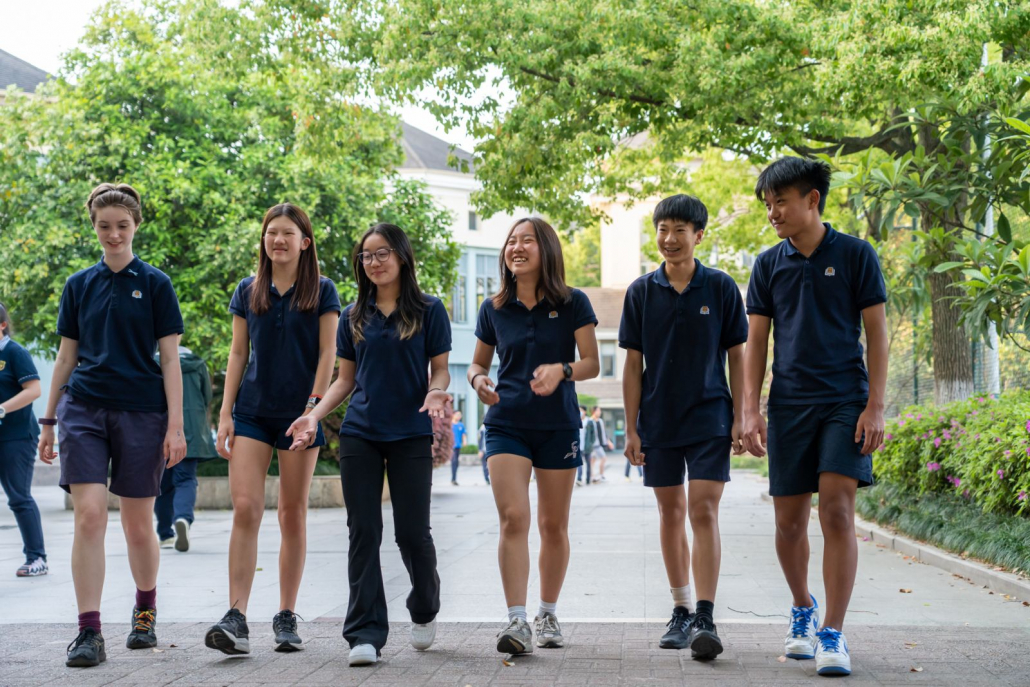
Can you explain how Vision ‘33 will shape CIS’s future?
A little more than two years ago, our community came together to co-create CIS’s strategic plan for the period leading up to 2033, when we’ll be celebrating our 50th anniversary. Called Vision ‘33, this transformative roadmap lays out three main priorities for the decade ahead: a. student well-being and agency (in the language of our strategic framework: “Each Learner Flourishing”); b. 21st-century teaching and learning, including STEAM for all (“New Paths Discovered”); and c. social and environmental responsibility (“Bridges for Good”).
Can you share more on CIS’s Year 10 boarding programme in Hangzhou?
Our entire Year 10 cohort spends 10 months in Hangzhou. This experience has four pillars, the first of which is “China,” and refers to the complete immersion of our students into all dimensions of Mainland life, which become their main sources of learning and inspiration throughout the year. Our other three priorities are “Character,” “Challenge,” and “Community,” each of which is made possible by a world-class boarding school environment, one that’s purposefully designed to nurture independent, enterprising, compassionate young people. It’s no small wonder that this life-changing programme, currently in its 12th iteration, is beloved of them all.
What’s a typical day at the Hangzhou campus?
Every day in Hangzhou starts and concludes with “Family Time,” five minutes in the morning and 30 minutes at night, when students sharing the same residential suite gather to build community. Studies take place from 8am through approximately 5pm on weekdays, with a half-day on Saturday mornings. On Wednesday afternoons, all of our students engage in service activities across the city and neighbouring areas in Zhejiang Province. Built into our schedule, there’s additional time for self-directed learning and co-curricular interests, as well as flexibility for the experiential learning projects our students carry out across China. At 9pm each evening, it’s worth noting that they hand in their digital devices for safekeeping until the following morning, underscoring our dedication to the thoughtful use of technology.
How does CIS prepare students for global higher education, and where do they typically graduate?
We’re fortunate to have a very talented and experienced team of five full-time university counsellors working with our students, beginning in Year 10. However, we also consider that preparing them for admission to and success in higher education around the globe is a whole-school responsibility, so everyone collaborates towards that important end: faculty, co-curricular leaders, advisors, and more. In terms of destinations, roughly 15% of our Graduates stay in Hong Kong, while 50% head to the United States, 25% to the United Kingdom, 5% to Canada, and 5% to other countries, including Australia, Ireland and Singapore.
Chinese International School, 1 Hau Yuen Path, Braemar Hill, 2510 7288, cis.edu.hk


